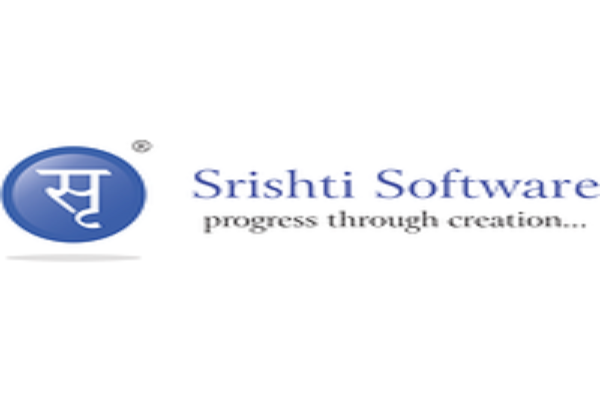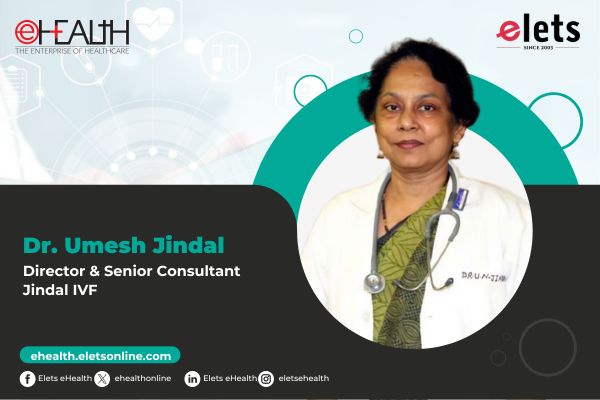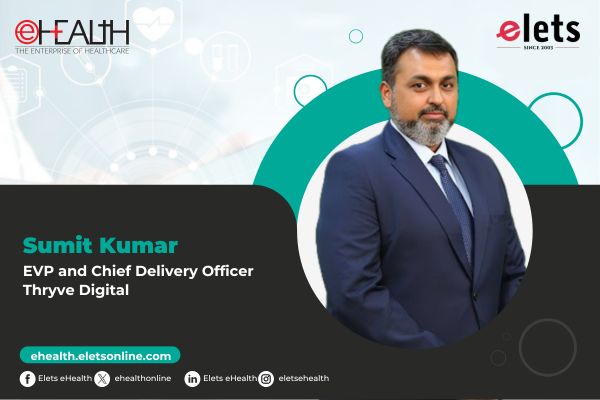
Srishti Software PACS IT with immense Health Potential
Bangalore-based Srishti Software, a leading provider of Healthcare Information Management System (HIMS), which received the Innovative Company of the Year Award from the President APJ Abdul Kalam in 2005, has earned another feather in its cap.

It has recently announced the successful implementation of Picture Archiving and Communication System (PACS) with HDTV production facility in the President’s Estate Clinic (PEC), the family wing of Rashtrapati Bhawan, New Delhi.

Using the Picture Archiving and Communication System (PACS), Srishti Software has linked the President’s Estate Clinic with CARE Hospital in Hyderabad, the military-run RR Hospital in Delhi and All India Institute of Medical Sciences (AIIMS). PACS helps to capture, store, distribute, and then display medical images. This eliminates the need to manually file, retrieve or transport film jackets or other media items. PACS has the ability to deliver timely and efficient access to images, interpretations and related data and breaks down the physical and time barriers associated with traditional film based retri, distribution and display.

With the integration of all these hospitals with the President’s Estate Clinic, the entire medical records of the President’s Estate Clinic will now be visible to the specialists of all these three hospitals, which will facilitate them to give their expert opinions without delay. Moreover, according to the CEO of Srishti Software Ajay Kumar Sharma, although the entire implementation would have cost around Rs 40 lakh, he did it for approximately Rs 10 lakh for Rashtrapati Bhavan. The reason? The immense prestige associated with the project.

“We are pleased that we were able to work closely with the President’s Estate Clinic and implement PACS”, said Ajay Shankar Sharma, CEO, Srishti Software.
Apollo sets up Health City in Hyderabad
The Apollo Hospitals Group launched Apollo Health City, the first functional health city of the Asian continent. This health city, located in Hyderabad’s Jubilee Hills, offers much more than the conventional curative care. It offers comprehensive medical solutions, which include preventive care, holistic medicine, and medical research and education. The focus here is not merely restricted to the cure of illness, but towards total wellness of being. Besides conventional medication, alternative form of medicines will also be offered at this facility.
The Health City, spread over 33 acres of land, comprises of 300-bedded multi-specialty hospital, with over 50 specialties and super-specialties. Centres of excellence for cardiac diseases, cancer, orthopaedics and joint diseases, emergency, renal diseases, neurosciences, eye, minimally invasive surgery, trauma and cosmetic surgery are in the offing, which is likely to give this world class integrated healthcare facility an added appeal across the globe.
Apollo Health City has given due importance to the increasing interconnectedness between ICT and healthcare. According to Prathap C Reddy, Chairman, Apollo Hospitals Group, Apollo Health City has a number of initiatives, which include Health Street�medical BPO services for offshore customers, and Medvarsity�an online education programme for medical professionals. Apollo Health City will also have the academic and technical thrust. It will have institutes of PG education for doctors and nursing school and college. Sections on medical informatics, emergency medicine and paramedics will also be introduced. The Apollo Group wants this health city to have a special economic zone (SEZ) status and has plans to apply for the same. This health city does have the potential to make an indelible impact in India’s healthcare scenario.
A Low-cost Telemedicine Project Addressing Quality Healthcare
Satguru Pratap Singh Apollo Hospital, Ludhiana has launched a low-cost e-telemedicine project, which enables the expert medical practitioners at Satguru Pratap Singh Apollo Hospital to view and monitor live ECG, TMT, etc. of patients of other medical institutes, and offer them on-the-spot expert advices. These advices to the patients are provided free of cost.
 The whole process entails a minimal investment on the part of those medical institutes, who chose to establish a telemedicine network with Satguru Pratap Singh Apollo Hospital. This innovative, cost-effective software, developed by Satguru Pratap Singh Apollo Hospital, is finding its customers in small towns where quality healthcare is hard to get. Earlier, doctors used to get only a facsimile copy of ECG, which gave only the static status of the patients’ heart, but now, thanks to the new software in this e-telemedicine project, doctors at Apollo can monitor live ECG and tap on to the change in modulations occuring in seconds, which helps to get a more accurate picture of the patient’s condition. In other words, through this telemedicine software, the doctors can now view live diagnosis. The software employed by this hospital is a marked improvement over the V-sat method, which is generally used in telemedicine consultation.
The whole process entails a minimal investment on the part of those medical institutes, who chose to establish a telemedicine network with Satguru Pratap Singh Apollo Hospital. This innovative, cost-effective software, developed by Satguru Pratap Singh Apollo Hospital, is finding its customers in small towns where quality healthcare is hard to get. Earlier, doctors used to get only a facsimile copy of ECG, which gave only the static status of the patients’ heart, but now, thanks to the new software in this e-telemedicine project, doctors at Apollo can monitor live ECG and tap on to the change in modulations occuring in seconds, which helps to get a more accurate picture of the patient’s condition. In other words, through this telemedicine software, the doctors can now view live diagnosis. The software employed by this hospital is a marked improvement over the V-sat method, which is generally used in telemedicine consultation.
A normal telemedicine installation requires an investment to the tune of Rs. 60 lakh, whereas this technique requires just an Internet broadband connection and a digital ECG machine. Presently the hospital has entered into a tie-up with Sachdeva Hospital and Jassi Hospital in Fazilka- a little town in the Ferozpur district of Punjab. Talks are on with other hospitals in Punjab. It is believed that this telemedicine endeavour will facilitate delivery of quality healthcare to the small towns and rural areas in the near future.
DFID grant to facilitate healthcare access
The Department for International Development (DFID) from UK has announced a grant of �250 million to India for improving the access to healthcare services among the poor and the marginalised sections of India, and also for achieving the Millennium Development Goals.
Funds will be allocated for the Reproductive and Child Health (RCH)-II programme, the National Aids Control Programme (NACP)-III, and other schemes that are being run at the state-level for improving women’s health.
Of this whooping amount, INR 816 million has been earmarked for NACP-III to deal with HIV/AIDS infection in India between 2007 and 2012. This grant would facilitate healthcare in India.
Electronic Cardiac uation in India
Cardiac patients in Dar es Salaam, Tanzania can undergo electronic cardiac uation, conducted by the medical experts at the world famous Narayana Hrudalaya Heart Institute, Bangalore, India, without moving out of their city. The ICT network between Regency Medical Centre in Tanzania and the Bangalore-based Narayana Heart Institute has enabled this telemedicine service, or more precisely the videoconferencing link, between the two hospitals.
As a result of this telemedicine linkage, the heart specialists at Narayana Hrudalaya Heart Institute can read the results pertaining to the cardiac patients of the Regency Medical Centre through computer, and send in their expert electrocardiograph and electrocardiogram reports along with prescriptions, within minutes.
Asian Heart Institute to Give Space to Telemedicine
Chennai-based Space Hospitals has entered upon a three-year deal with Bandra-based Asian Heart Institute, under which the former will provide the Asian Heart Institute with technical support for transmitting medical expertise to the remote corners of Maharasthra and the rest of India. The medium will of course be satellite-based communication. This telemedicine project will entail diagnosis,medical consultation, medication and treatment to remote and underserved patients of the country, by the expert medical practitioners at Asian Heart Institute.
However, here it deserves a mention that Asian Heart Institute is not entirely new to telemedicine. The hospital already has a telemedicine infrastructure which facilitates communication between the hospital and its doctors’ residences, but now with the technical support of Space Hospitals, this set up will undergo expansion. The Space Hospitals’ technical support include a ‘black box’, which will enable teleconsultation and telediagnosis between referral centres and a major hospital, through videoconferencing. With the advent of this videoconferencing link, direct conversations between cardiac specialists at Asian Heart Institute and the patients in some remote village will be a welcome norm. The technology and softwares used will make real-time transmission of ECGs, angiographs and information regarding other vital health parameters a reality.
The sophisticated videconferencing that this telemedicine project will provide would greatly facilitate cardiac care to the poor, remote and rural patients, as through this technology doctors will even be able to see the extent of blockage in the arteries.
This would greatly facilitate their decisions. The project is expected to take-off by the beginning of July 2007, as work on testing the equipment and facilities is going on.
This project, and the ISRO-backed KEM hospital telemedicine project, are together geared to change the telemedicine scenario of the state of Maharashtra, by facilitating its underserved population to access quality healthcare in the near future.
ISRO working on portable Telemedicine Kit
 ISRO is out to revolutionise telemedicine by making it more user friendly. It is contemplating to develop a miniature model of the telemedicine kit, which can be packed into a suitcase. The actualisation of this innovative idea could usher in a new era in telemedicine technology, by endowing telecare with the added muscle of mobility. This handy telemedicine kit can administer emergency care to travellers falling suddenly sick, on board a moving train or an aircraft. Through this proposed kit, a sick person on board a moving train or aircraft, or his relatives/friends/ co-passengers, can immediately contact one of the leading hospitals in the network, and get expert advice.
ISRO is out to revolutionise telemedicine by making it more user friendly. It is contemplating to develop a miniature model of the telemedicine kit, which can be packed into a suitcase. The actualisation of this innovative idea could usher in a new era in telemedicine technology, by endowing telecare with the added muscle of mobility. This handy telemedicine kit can administer emergency care to travellers falling suddenly sick, on board a moving train or an aircraft. Through this proposed kit, a sick person on board a moving train or aircraft, or his relatives/friends/ co-passengers, can immediately contact one of the leading hospitals in the network, and get expert advice.
However, such a welcome reality is still in the conceptualization stage. According to ISRO’s Chairman Madhavan Nair, presently ISRO is studying a proposal from Air India, which has asked the space agency to supply it with compact telemedicine kits. At the same time, there are lots of challenges and impediments involved in realisation of this techno-revolution of sorts. One of them, according to Nair, is to “make the antenna and other equipment extremely compact.” ISRO is going to have the K-band system, where, according to Nair, “the antenna’s size will be significantly reduced.”
This will further enable the packing of all the requisite medical equipments�ECG, stethos- cope,etc. Then only the conception of a miniature model of telemedicine kit can result in a successful reality.
Polio in India raising concerns of slapping of Travel Advisory
 India is faced with a looming threat of travel advisory in the near future, if it fails in eradicating the disease of polio. Dr. Ramadoss, the Union Minister of Health and Family Welfare, while addressing a review meeting of the health ministers of Indian states affected by polio, expressed concern over a resolution that was recently introduced at the World Health Assembly, held at Geneva, where it was stated that anyone travelling to and from India must have a mandatory polio immunisation. Ramadoss informed that though concerted efforts avoided imposing the resolution on India, the threat of travel advisory is still there, until and unless India attains success in completely eradicating polio. This resolution if effective, would have augured serious negative effects on India’s economic growth.
India is faced with a looming threat of travel advisory in the near future, if it fails in eradicating the disease of polio. Dr. Ramadoss, the Union Minister of Health and Family Welfare, while addressing a review meeting of the health ministers of Indian states affected by polio, expressed concern over a resolution that was recently introduced at the World Health Assembly, held at Geneva, where it was stated that anyone travelling to and from India must have a mandatory polio immunisation. Ramadoss informed that though concerted efforts avoided imposing the resolution on India, the threat of travel advisory is still there, until and unless India attains success in completely eradicating polio. This resolution if effective, would have augured serious negative effects on India’s economic growth.
However, Ramadoss acknowledged that India has made significant progress in curbing the menace of polio, but at the same time, he fervently urged in the meeting to completely eradicate polio from India, and show it to the world.
It is to be noted that about 193 countries at the WHA wanted such a resolution to be on. The spread of polio to countries, which are free from this disease, can lead to severe economic and human resource loss for these countries, and thus in a way they were not entirely unjustified in their claims.
Dr Ramadoss said India convinced the WHA that the government was committed to eradicate polio, and for this purpose the country has earmarked Rs 1300 crore for the polio eradication project alone.
Be a part of Elets Collaborative Initiatives. Join Us for Upcoming Events and explore business opportunities. Like us on Facebook , connect with us on LinkedIn and follow us on Twitter , Instagram.
"Exciting news! Elets technomedia is now on WhatsApp Channels Subscribe today by clicking the link and stay updated with the latest insights!" Click here!
















